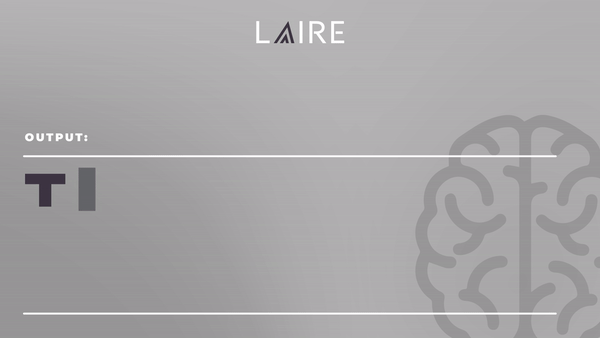If you’re in the digital marketing space — or just computer savvy — you’re probably all too familiar with the artificial intelligence (AI) chatbot ChatGPT.
ChatGPT utilizes technology dubbed "large language model tools" to answer questions and create content based on users’ requests. A product of the AI company Open AI, the tool can do just about anything from creating content outlines to writing code.
Given its versatility and massive information database, many writers and content creators have worried that ChatGPT will swoop in and steal their jobs. After all, the chatbot can write hundreds of words in seconds — and without added costs.
Should you be worried, too?
Will ChatGPT Replace Original Content?
Picture this: You’re a marketing manager for a financial services company tasked with up-leveling your company’s blog content strategy and execution.
You hop on ChatGPT and ask the bot to write a 1,200-word blog article about mutual funds, receiving a draft in just a couple of minutes. You publish the content to your website, and almost instantly, the post ranks at the top of the search engine results pages (SERPs) — capturing dozens of new leads in a single day.
If you think this sounds too good to be true, you’d be right. Unique, optimized content beats AI any day of the week for the following reasons:
- ChatGPT does not have access to real-time information and has a knowledge cut-off of September 2021. If your industry is rapidly changing, the chatbot can’t keep up.
- ChatGPT is not capable of independent thought, creativity, or originality in the same way a human writer is. The content it produces is limited to the information it’s provided and may lack the unique insights and perspectives only a human writer can capture.
- With ChatGPT, there is a possibility that some of the text it generates may overlap with existing sources of information. This means that it’s the user's responsibility to ensure any work produced using the tool is original and free of plagiarism.
- ChatGPT is not specifically designed for SEO (search engine optimization), meaning users must take additional steps to ensure content is optimized for search engines.
- ChatGPT doesn’t know your brand voice and personality. It can spout off information, but it won’t be able to speak to your target audience like you can.
Simply put, ChatGPT is not a replacement for high-quality, original content. There’s no robot coming for your jobs, marketers.

5 Ways to Use ChatGPT for Content Without Sacrificing Quality
Although we believe AI can’t replace original content, we still think the tool still has some pretty incredible time-saving benefits for writers and marketers. Keep reading to learn about five ways to use ChatGPT to streamline your content creation process.
1. Brainstorm Topic Ideas
Planning next quarter’s editorial calendar? ChatGPT can be an essential tool for coming up with new content ideas.
Before you jump in and type out your prompt, make sure you have a clear understanding of your target audience and the topic area you want to write about. This will help to ensure that the ideas generated by ChatGPT are relevant and useful.
Once ChatGPT generates a response, review the generated text and refine and expand on the ideas to create a list of potential blog topics. For example, you could combine two or more of the ideas to create a more comprehensive topic, or you could use the ideas as inspiration to create something totally unique.
Additionally, if you know which of your existing blogs get the most traffic, you can use ChatGPT to come up with related topic ideas. This will allow you to deliver the types of content you know your audience finds interesting and engaging.
2. Create Content Outlines
Use ChatGPT to prep content outlines in batches and save time and energy. Simply provide a prompt that describes the main idea of the article, include a couple of keywords you want to target, and let the tool do the rest.
ChatGPT will generate a response that includes several potential subtopics or points you can use to structure your content. Feel free to refine, reorder, or expand on the suggestions provided to create a more comprehensive outline.
With AI, a task that might have taken 30 minutes to an hour now takes just a couple of minutes.
3. Combat Writer’s Block
Has this ever happened to you? You’re almost finished writing a comprehensive 1,500-word blog — all that’s left is the conclusion, but you’ve hit a wall. You just can’t think of another way to communicate the main point of the blog and tie everything together. ChatGPT can be your saving grace.
Open up the AI tool, summarize your article (or just copy and paste the content directly), and ask for a couple of concluding paragraphs. Now, you have a starting point for a suitable conclusion; all you have to do is pretty it up and add a call-to-action (CTA). Bye-bye, writer’s block.
4. Write Meta Descriptions
Although meta descriptions aren’t ranking factors for Google, they still play an important role in enticing readers to click on your page as they’re scrolling through search results.
ChatGPT can be used to write meta descriptions in seconds. After you input a prompt and the tool generates text, you can refine and edit its suggestion to make it concise, clear, and compelling. Remember: Your meta description should be limited to 155 characters and should encourage users to click through to your site.
5. Draft Social Post Copy
ChatGPT is your in-house social media writer and can help you get way ahead on your social post scheduling.
You tell the tool exactly what you want. Instagram caption with hashtags? Done. Educational LinkedIn post? Easy. Short and sweet Twitter post that fits within the correct character limit? Thank you, next.
But remember that just as you would never publish any other writer's work without reviews and edits, AI-written content should never be published as-is. We recommend tinkering with the copy as much as you want to ensure it’s engaging, informative, and relevant to your audience and platform.
Frequently Asked Questions About ChatGPT
Can ChatGPT write essays?
Yes, ChatGPT is designed to generate human-like text that is grammatically correct, coherent, and relevant to the topic at hand. However, the quality of the essay depends on the quality of the prompt, as well as the scope and depth of knowledge required to answer the question effectively.
Is ChatGPT plagiarism-free?
While ChatGPT strives to provide unique and original content, it may at times generate text that overlaps with existing resources. If you use ChatGPT for content creation, you should always credit the source and ensure that the text is properly paraphrased or quoted as necessary.
Can Google detect ChatGPT content?
While Google's algorithms are not specifically designed to detect text generated by ChatGPT, they are capable of detecting duplicate or plagiarized content. In turn, if you use text generated by ChatGPT without properly citing, quoting, or paraphrasing it, your website may be penalized and receive a lower search ranking.
ChatGPT = Your Trusty Sidekick, Not Your Replacement
Rest assured that ChatGPT is not coming for your job as a marketer.
While this AI chatbot can write hundreds of words in seconds, it lacks the creativity, originality, and real-time knowledge that a human writer possesses. Plus, let's not forget about the possibility of plagiarized text and the need for additional SEO optimization measures.
Still, if you want to give ChatGPT a shot to save time and streamline your marketing efforts, it's important to know how to use it to get the best outputs. These 34 AI marketing prompts are the perfect thing to help you get started:



